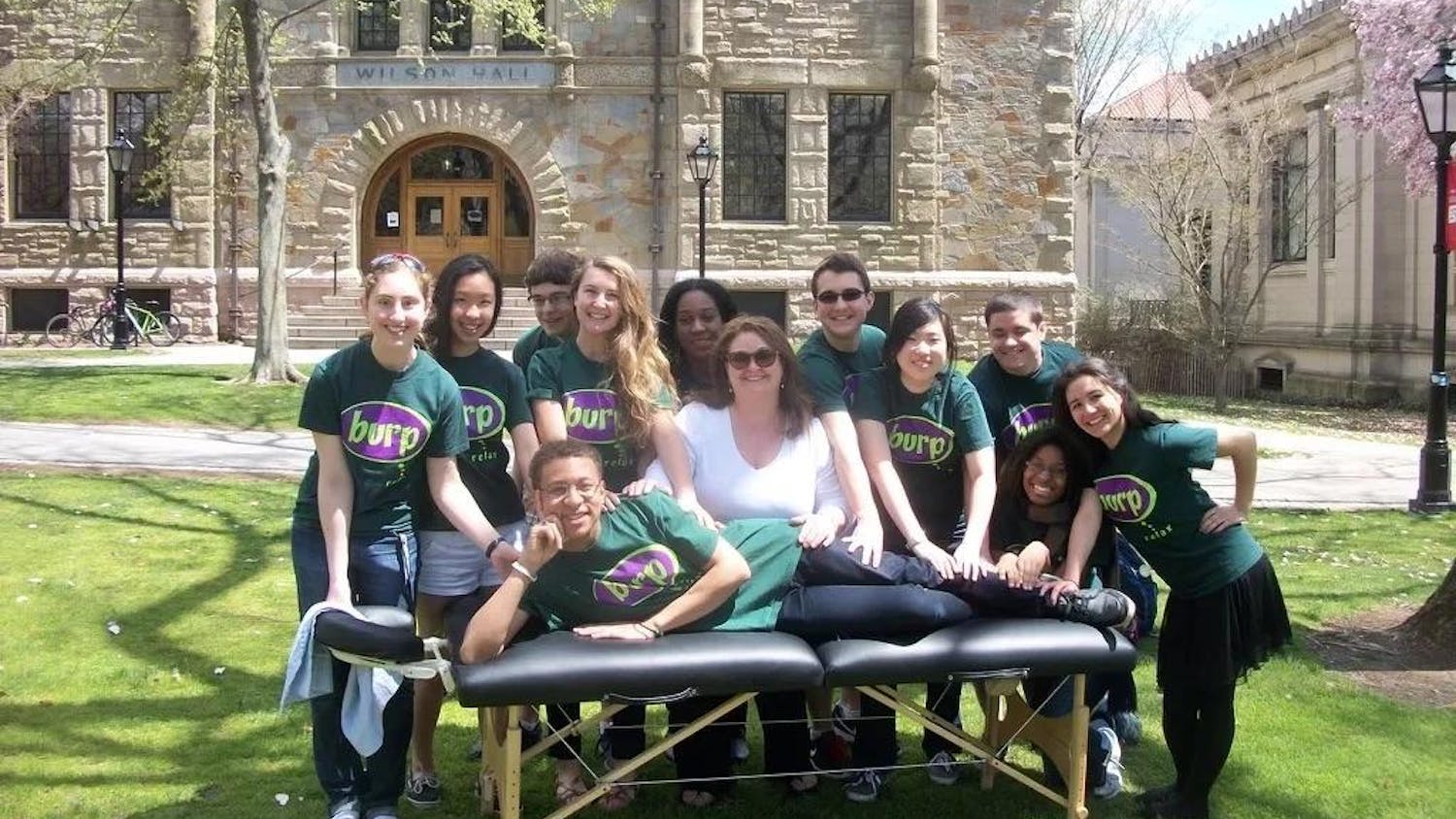Kaiulani Lee is afraid of change.
"I'm chicken," she said, speaking to a Salomon 101 audience Wednesday night about the thought of editing her long-running play, "A Sense of Wonder."
"It's like Pandora's box. I'm so terrified of opening it up and never being able to close it again!"
Though she makes no conscious changes to the one-woman play about the life of biologist and writer Rachel Carson, Lee said the audience plays an integral role in interpreting the power of the play, in which she stars. The work explores the person behind the seminal book "Silent Spring," which helped jumpstart the environmentalist movement.
Lee said she chose a lesser-known work of Carson's for the play's title, a name that speaks to Carson's own character and place in life.
"It was her sense of wonder that sustained her," Lee said.
"A Sense of Wonder" comprises two acts that both open on Carson in a home environment, but the setting changes when the scenes transition. The first act begins in Carson's seaside cottage on the coast of Maine on a late afternoon in September 1963, a year after "Silent Spring" was published. The scene opens on Carson writing a letter to a friend, ruminating on the cycle of life and the solace she takes in nature.
Carson faces a cycle at that very moment. The summer is ending, and it is time for her to pack her belongings and return to her winter home in Silver Spring, Md. — back to a world full of the clamor of "Silent Spring" where she and her adopted son Roger must reunite with their "winter selves."
She speaks often of Roger, her 11-year-old great nephew whom she adopted when his mother, and Carson's niece, died when the boy was five. Carson, who grew up poor in landlocked Pennsylvania, long dreamed of seeing the ocean, and it is fitting that her old love of writing enabled her to do so. As she addresses the audience, though, she tracks the development of her personal and career interests. She always wanted to be a writer, she says, but she fell in love with science during college.
The play explains how Carson attended Johns Hopkins University for graduate school to study zoology, but when her sister died and left Roger's mother in her care, Carson began her search for a job that would enable her to raise her family, including her ailing mother.
She worked for the Fish and Wildlife Service but began to write seriously after she submitted an article to the Atlantic Monthly. She started on a course that she says made her a "biologist by day, writer by night," culminating in her success as author. Writing comes naturally to Carson. "In some mysterious way, I believe the subject chooses the writer, not the other way around," the character says, admitting that she never considers whether "I was doing it scientifically or poetically" — but the loss of privacy that accompanies fame strikes her as peculiar. Her cabin, a haven by her beloved sea, represents the sheltered world she wants to inhabit.
The first act ends on this note, and the second picks up months later in her Maryland home, where she is again writing — this time a speech she is set to give in California. Whereas the first act is primarily a personal account, Carson opens up in the second act about environmentalism itself, in particular the harmful effects of insecticides on the earth.
She talks about writing "Silent Spring," the book that started small before expanding under the wealth of research and information she found. Her health and personal life suffered during the 4 1/2 years she spent writing: Her mother died, and she was plagued by a host of ailments from ulcers to heart trouble to arthritis. In 1961, cancer sapped her of most of her strength. But Carson could not cease writing when she had such fascinating and complex material.
"It was like I was putting together the pieces of an enormous jigsaw puzzle," she says.
Carson's complexities shine through thanks largely to Lee's performance. They are often Carson's own, taken from her speeches and writings, but Lee projects through the text a character who is both very old and very young. Lee's Carson is full of good humor, wryly ridiculing the detractors who call her a "hysterical woman."
But Lee also succeeds at conveying Carson's solemnity. Carson jokes about not packing in order to avoid leaving the Maine cabin, but Lee's voice is bittersweet without being cloying. When Carson explains to the audience how DDT, the harmful pesticide, kills wildlife or makes it infertile, she speaks with an air of authority that still hints at the woman's own heartbreak.
During the second act, when Carson sits down to her desk but realizes she left her tea by her parlor chair, she debates whether she ought to get up or not.
The indecision Lee portrays is humorous, but Carson is exhausted from the radiation for her cancer. Her body aches, and she knows she is aging. Her spring, in some sense, has passed.
But then she stands up anyway, retrieves her tea and makes her way back to her desk, where she scribbles the last details of the speech she was earlier struggling to write.




